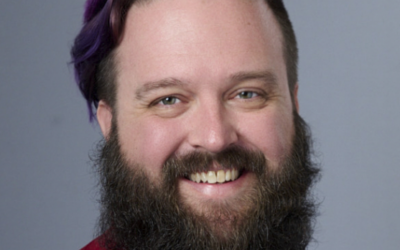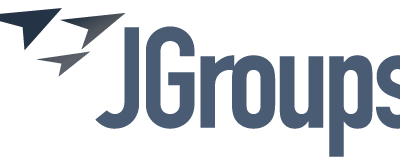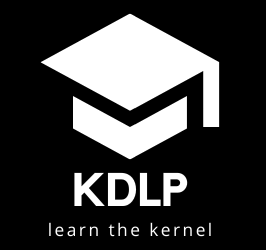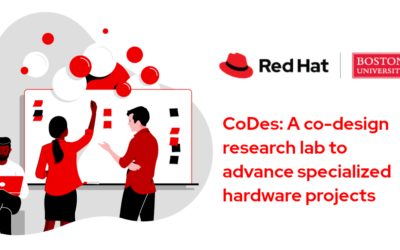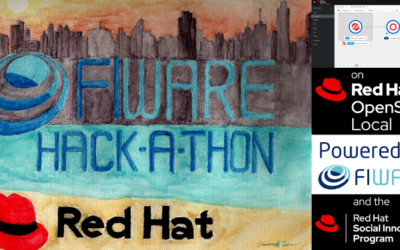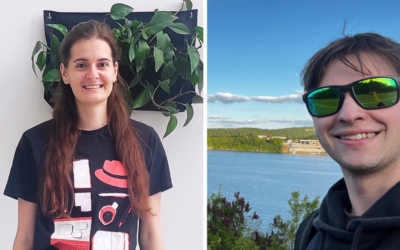At Red Hat Research, we hire creative, passionate students who are ready to work and learn with a global leader in open source solutions. Our interns bring fresh ideas and new connections to challenging problems in the open source community, unlocking their own potential while contributing to the innovative power of open development.
This blog post spotlights Isaiah Stapleton, a Software Engineering Intern who has been with Red Hat Research since May 2022. Isaiah shared with us his interest in kernel development and his insights on the benefits of open source culture, dealing with imposter syndrome, and more. He is a senior undergrad computer science major/data science minor at the College of Charleston in South Carolina.
Check out Isaiah’s Red Hat Research People Profile to watch his Unikernel Linux (UKL) presentation and follow him on GitHub.
What have you been working on during your time as a Red Hat Research intern?
Over the summer, I worked on the Unikernel Linux (UKL) project. The UKL project aims to implement a patch to the Linux kernel that allows users to build a number of programs as unikernels. The programs are linked with the Linux kernel into a final binary that runs in kernel space. Running a program as a unikernel results in improvements in boot time, performance, and security. If the UKL patch set gets accepted upstream, that would mean that users running Linux would be able to build and run these programs as unikernels.
I was tasked with porting Nginx over to the UKL project. The purpose of this is that it gives us one more application to build as a unikernel. Nginx was chosen because it is a very popular open source web server with many users. Porting it over to the UKL project gives us one more application to build as a unikernel and moves us one step closer to our goal of getting our changes pushed upstream.
Did your project achieve its goals?
My project did achieve its goals! I was successful in porting Nginx over to the UKL project.
What makes you interested in open source research?
What interested me about open source research is the great deal of collaboration between diverse individuals. Open source fosters a sense of community and collaboration that draws individuals with unique backgrounds from all over the world. I believe that diversity results in more innovation. Another interesting aspect is security. Open source allows anyone to see the source code, and, if there is a bug, all the user has to do is report it, and the open source community will rush in to patch it.
I now believe open source is the future. I am interested in creating software solutions that positively impact people’s lives. With open source, we can solve real issues in our communities while innovating, collaborating, and growing together.
What made you interested in working with Red Hat Research?
Throughout my undergraduate years, I have been on multiple research projects. I enjoy the entire research process. It excites me that there are things out there that have not yet been done or discovered that can impact the world in a positive way. What I really like about Red Hat Research is that it feels like a bridge between industry and academia. I enjoy working in academia and I enjoy working in industry—Red Hat Research is the best of both worlds.
What knowledge, experience, or skills did you gain through your experience as an intern?
During the onboarding process, I learned about how Red Hat operates as a company, open source, and the open source development model, as well as the range of products Red Hat offers. Through working on my project, I gained technical skills such as working with the Linux command line, build systems, kernel development, and C debugging. Before starting my internship, I was a Windows user and only used Linux through VMs. After working with Linux all summer, I now much prefer it over Windows. I also gained a lot of soft skills, including presenting, public speaking, and networking. My presentation and public speaking skills are now much better than they were before I started at Red Hat.
Who are your mentors? How have your project mentors helped you?
I have had three mentors throughout my internship: Larry Woodman and Eric Munson are my technical mentors, and Shamair Faison was my Early Talent Mentor. Larry Woodman originally got me hooked on the idea of Red Hat when I ran into him during his visit to Charleston, SC. Since then, he has continued to aid me throughout my life and career—I know that I can go to him about anything. Eric Munson was my project mentor. He taught me so much about kernel development in such a short period of time. When I first started at Red Hat, I had no previous experience with kernel development, so I am very grateful to have had Eric as my project mentor, since he is very patient and was willing to help me whenever I ran into issues.
The Early Talent Mentoring program is a program at Red Hat that matches mentors with mentees. Shamair Faison and I met biweekly for the duration of my internship to discuss my goals and create actionable steps for working towards them. The very first thing Shamair helped me with was my imposter syndrome. At the beginning of my internship, I struggled a lot with it as I did not have any prior experience with kernel development and felt as if I was not contributing enough. Shamair explained to me that it is normal to experience that. I am at Red Hat because Red Hat wants me here, and no one expects me to know everything. I am here to learn, and my contributions are valued. Now anytime I experience imposter syndrome, I remind myself of this. She also helped me a lot with my soft skills. I would practice presentations for her, and she would give me feedback on them.
I am very grateful for all of my mentors. I would not be where I am today without them.
What are your longer-term career and research goals, and how will this internship help you?
Before this internship, I had the goal of working as a software engineer, but I was not sure what type of role. As of now, I have the goal of working toward being a kernel developer. I recently decided that I would like to get my PhD in computer science. I plan to get my PhD at Boston University while continuing to work at Red Hat.
What other things did you do with Red Hat or in the open source space during your time as a Red Hat Research intern?
Red Hat has a wide variety of diversity, equity, and inclusion communities. I had the pleasure of joining a cohort of interns in Blacks United in Leadership and Diversity (B.U.I.L.D.) this summer under the leadership of Kmaia Mix. Kmaia and the B.U.I.L.D. leadership team helped all of us interns improve our presentation skills with regular practice and constructive feedback. Near the end of the summer, we presented to the Corporate Leadership Team, which included Red Hat CEO Matt Hicks. I was very surprised that the CEO could make time to watch the intern presentations and provide feedback on all of them.
What advice would you give to a new Red Hat Research intern?
The first piece of advice I can offer is to understand that you are here to learn. No one expects incoming interns to know everything. You are here because Red Hat saw something in you. You are a valued member of the company, just like every other employee. Remember this whenever you start feeling imposter syndrome. I also advise getting multiple mentors. My Early Talent Mentor, Shamair, is not in a technical role, and, as such she is able to offer a unique perspective that differs from those in more technical roles. I believe it is from a wide range of perspectives that we learn and grow most. I would also recommend that you get involved in a community. I was able to learn a lot from B.U.I.L.D. and met many amazing individuals I would not have met otherwise. It is also important to set goals for yourself and map actionable steps to achieve these goals. I recommend working with your mentor(s) or manager on goal setting and action plans.
Now for some fun questions. First, dogs, cats, or other?
Dogs! I have four dogs at home, and I used to be a self-employed dog trainer.
What is your favorite travel destination?
I love everything about Mexico: the history, the diverse geographical landscape, the people, the food, the music, the dances. Mexico is a culturally rich and diverse country, and I am glad I have had the pleasure of experiencing it firsthand. I have also been learning Spanish for the last few years and am fully conversational. Going to Mexico allows me to fully immerse myself in the language. I have been to Tulum and, more recently, Mexico City. I hope to be able to explore much more of the country in the future.
What are your talents or hobbies?
I am very interested in language learning. Over the past two years I have been learning Spanish and also recently started learning French. I have a goal of learning at least five languages in my lifetime, including Mandarin Chinese. I love learning languages because it allows me to communicate with people that come from vastly different parts of the world. I am able to learn about many different cultures, gain different perspectives, learn new things, and have opportunities that I would not be able to have if I did not speak the language.

